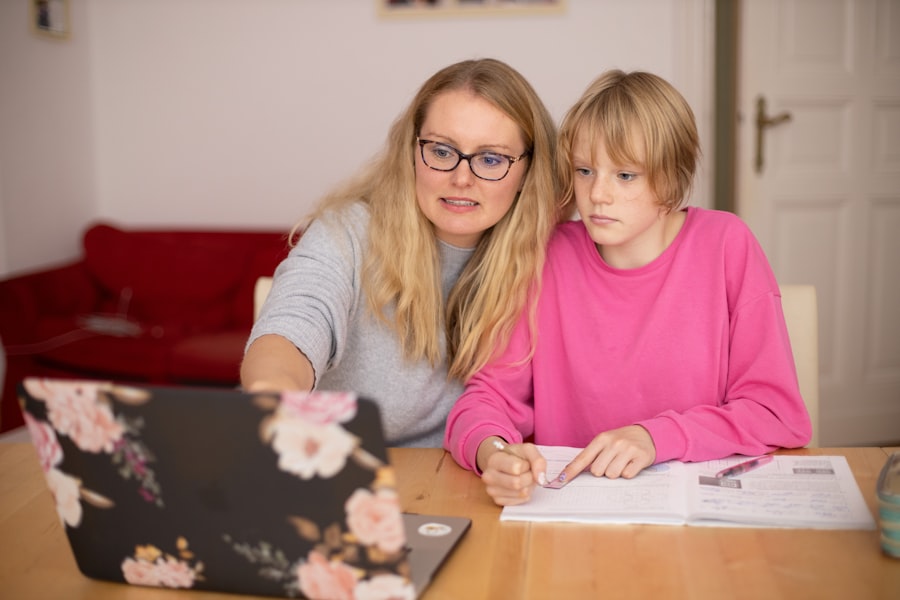Personal growth and self-improvement are fundamental aspects of human development that encompass a wide range of practices aimed at enhancing one’s quality of life. This journey is often characterized by a conscious effort to evolve, learn, and adapt in various dimensions of life, including emotional, intellectual, and social realms. The pursuit of personal growth is not merely about achieving external success or accolades; it is deeply rooted in the desire for self-discovery and fulfillment.
Individuals embark on this journey for various reasons, whether it be to overcome personal challenges, enhance their skills, or simply to lead a more meaningful life. The process of self-improvement is inherently personal and can take many forms. It may involve setting specific goals, seeking new experiences, or engaging in reflective practices that foster deeper understanding of oneself.
The importance of this journey cannot be overstated; it serves as a catalyst for change, enabling individuals to break free from limiting beliefs and behaviors. As people invest time and energy into their personal development, they often find themselves more equipped to navigate the complexities of life, build healthier relationships, and contribute positively to their communities.
Key Takeaways
- Personal growth and self-improvement are essential for achieving success and fulfillment in life.
- Mindfulness and meditation can help reduce stress, improve focus, and enhance overall well-being.
- Emotional intelligence and self-awareness are crucial for building strong relationships and effective communication.
- Setting clear goals and managing time effectively are key to achieving personal and professional success.
- Strong communication and interpersonal skills are vital for building meaningful connections and thriving in both personal and professional settings.
Mindfulness and Meditation
Mindfulness and meditation are powerful tools that have gained significant attention in recent years for their profound impact on mental well-being and personal growth. Mindfulness refers to the practice of being fully present in the moment, acknowledging one’s thoughts and feelings without judgment. This practice encourages individuals to cultivate awareness of their internal experiences, which can lead to greater emotional regulation and clarity.
By focusing on the present, individuals can reduce anxiety about the future or regrets about the past, fostering a sense of peace and acceptance. Meditation, on the other hand, is a structured practice that often involves techniques such as focused breathing, visualization, or mantra repetition. Research has shown that regular meditation can lead to numerous benefits, including reduced stress levels, improved concentration, and enhanced emotional resilience.
For instance, studies have indicated that individuals who engage in mindfulness meditation experience lower levels of cortisol, the stress hormone, which can contribute to better overall health. Furthermore, meditation can serve as a gateway to deeper self-awareness, allowing individuals to explore their thoughts and emotions in a safe and controlled environment.
Emotional Intelligence and Self-Awareness

Emotional intelligence (EI) is a critical component of personal growth that encompasses the ability to recognize, understand, and manage one’s own emotions while also empathizing with others. High emotional intelligence enables individuals to navigate social complexities with greater ease and fosters healthier relationships. Self-awareness, a key aspect of EI, involves an honest appraisal of one’s strengths and weaknesses.
This level of introspection allows individuals to identify areas for improvement and develop strategies for personal development.
For example, someone with high emotional intelligence may notice when they are becoming frustrated during a conversation and choose to take a step back to regain composure rather than reacting impulsively.
This ability not only enhances personal interactions but also contributes to effective conflict resolution.
Moreover, self-awareness can lead to improved decision-making as individuals become more attuned to how their emotions influence their choices.
By cultivating emotional intelligence and self-awareness, individuals can create a solid foundation for personal growth that extends into all areas of their lives.
Goal Setting and Time Management
Goal setting is an essential practice in the realm of personal growth that provides direction and motivation. By establishing clear, achievable objectives, individuals can create a roadmap for their development journey. Effective goal setting involves not only defining what one wants to achieve but also breaking down larger aspirations into smaller, manageable tasks.
This approach not only makes goals feel more attainable but also allows for regular assessment of progress. Time management plays a crucial role in the successful execution of these goals. In today’s fast-paced world, the ability to prioritize tasks and allocate time effectively is paramount.
Techniques such as the Pomodoro Technique or Eisenhower Matrix can help individuals manage their time more efficiently by distinguishing between urgent and important tasks. For instance, someone aiming to improve their physical fitness might set a goal to exercise three times a week while using a calendar app to schedule workouts. By combining goal setting with effective time management strategies, individuals can enhance their productivity and stay focused on their personal growth objectives.
Communication and Interpersonal Skills
Effective communication is a cornerstone of personal growth that significantly influences interpersonal relationships. The ability to convey thoughts clearly and listen actively fosters understanding and collaboration among individuals. Strong communication skills encompass verbal, non-verbal, and written forms of expression.
For instance, being aware of body language can enhance face-to-face interactions by conveying confidence and openness. Interpersonal skills extend beyond mere communication; they involve the ability to build rapport, resolve conflicts, and work collaboratively with others. Developing these skills requires practice and a willingness to engage with diverse perspectives.
For example, participating in group activities or team projects can provide valuable opportunities for honing interpersonal skills. By actively seeking feedback from peers and reflecting on interactions, individuals can identify areas for improvement and cultivate more meaningful connections with others.
Stress Management and Resilience

In an increasingly demanding world, stress management has become an essential aspect of personal growth. The ability to cope with stress effectively not only enhances mental well-being but also contributes to overall resilience. Resilience refers to the capacity to bounce back from adversity and maintain a positive outlook despite challenges.
Developing resilience involves cultivating coping strategies that enable individuals to navigate difficult situations with grace. Techniques such as deep breathing exercises, physical activity, or engaging in hobbies can serve as effective stress relievers. For instance, someone facing work-related stress might find solace in regular exercise or creative pursuits like painting or writing.
Additionally, building a strong support network can provide emotional resources during tough times. Friends, family members, or support groups can offer encouragement and perspective when faced with challenges. By prioritizing stress management and resilience-building practices, individuals can enhance their ability to thrive in the face of adversity.
Creativity and Innovation
Creativity is often viewed as an innate talent reserved for artists or inventors; however, it is a vital skill that can be cultivated by anyone seeking personal growth. Engaging in creative activities stimulates the mind and encourages innovative thinking. Creativity allows individuals to approach problems from different angles and develop unique solutions that may not be immediately apparent through conventional thinking.
To foster creativity, individuals can explore various avenues such as brainstorming sessions, journaling, or engaging in artistic endeavors like painting or music composition. For example, someone working in a corporate environment might implement regular brainstorming meetings where team members are encouraged to share unconventional ideas without fear of judgment. This not only promotes a culture of innovation but also empowers individuals to think outside the box.
By embracing creativity as a fundamental aspect of personal growth, individuals can unlock new possibilities in both their personal and professional lives.
Financial Literacy and Budgeting
Financial literacy is an often-overlooked aspect of personal growth that plays a crucial role in achieving long-term stability and success. Understanding basic financial principles—such as budgeting, saving, investing, and managing debt—empowers individuals to make informed decisions about their money. A solid foundation in financial literacy enables people to set realistic financial goals and develop strategies for achieving them.
Budgeting is one of the most effective tools for managing finances effectively. By tracking income and expenses, individuals can identify spending patterns and make adjustments as needed. For instance, someone aiming to save for a vacation might create a monthly budget that allocates a specific amount toward savings while cutting back on discretionary spending like dining out or entertainment subscriptions.
Additionally, educating oneself about investment options can lead to better financial outcomes over time. By prioritizing financial literacy and budgeting practices within the framework of personal growth, individuals can build a secure financial future that supports their broader life goals.
FAQs
What are some examples of personal growth and self-improvement courses?
Some examples of personal growth and self-improvement courses include mindfulness and meditation, emotional intelligence, goal setting and time management, communication skills, and stress management.
Where can I find free courses for personal growth and self-improvement?
You can find free courses for personal growth and self-improvement on online learning platforms such as Coursera, edX, Udemy, and Khan Academy. Many universities and educational institutions also offer free courses on these topics.
Are free courses for personal growth and self-improvement of good quality?
Yes, many free courses for personal growth and self-improvement are of good quality. They are often created by reputable institutions and experts in the field. However, it’s important to research the course and read reviews to ensure it meets your needs and expectations.
What are the benefits of taking free courses for personal growth and self-improvement?
Taking free courses for personal growth and self-improvement can help you develop new skills, improve your mindset, and enhance your overall well-being. These courses can also provide valuable knowledge and tools for personal and professional development.
Do free courses for personal growth and self-improvement offer certificates?
Some free courses for personal growth and self-improvement offer certificates of completion, while others do not. It’s important to check the course details to see if a certificate is provided upon finishing the course.






